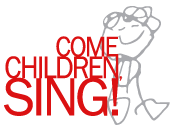Parents usually do a pretty good job of nurturing their child’s language development, but how to nurture a child’s music development is not common knowledge. It is only in the last thirty years that music education research has begun to uncover the process of music learning in the young child.
The early years are the most important time in your child’s life for music development. As with language, your child is primed for music learning. If you waited until your child was seven years old and then provided private language lessons, your child would never be able to recoup what was missed during those first seven years. Similarly, your child’s potential for music learning is at its peak right now. Feeding music development during the early years will sustain that potential so that your child can ultimately achieve musically in accordance with that early potential. As with other capacities your child is born with, if your child’s music potential is not fed, it will decline.
A child learns music much the same as language. The young child needs to be saturated aurally, and then grows into babble. The child interacts with loved ones who respond to his “meaning,” and who model greater competence. Ultimately, the child learns to walk and talk the language—move rhythmically and sing tunefully.
You can learn to nurture your child’s music development just as you do language development. Come Children, Sing! guides you in the process, providing appropriate music content and knowledge about music learning. Armed with CCS, your intuitive sense of nurturing your child will uncover new ways to interact with your child though music, new joys in day-to-day activities, and the satisfaction of knowing that you are providing appropriate music instruction for your child during the most important years for music learning.
|

